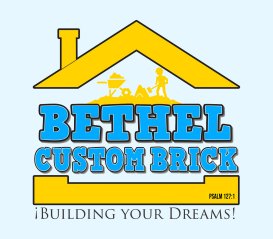Brick homes are prized for their timeless beauty and durability, but like any material, brickwork requires occasional maintenance. When brick damage occurs, homeowners often face a choice: repair the brick or replace it. Both options have distinct costs, benefits, and implications for the structure’s longevity. In this guide, we’ll break down the differences between brick repair and replacement and what you need to know to make the best decision for your home and budget.
What is Brick Repair?
Brick repair generally involves fixing specific issues with existing bricks, such as cracks, spalling, or mortar damage, without replacing entire bricks. Common brick repair techniques include:
- Repointing: Removing and replacing deteriorated mortar between bricks to strengthen and restore the structure.
- Patching Cracks: Filling in cracks to prevent further expansion and water infiltration.
- Sealing: Applying a protective sealant to prevent water absorption and reduce weather-related damage.
Average Cost of Brick Repair:
Brick repair costs can vary depending on the extent of the damage, the materials used, and the location. Generally, homeowners can expect to pay between $250 to $2,000 for minor repairs, such as repointing or filling small cracks. More extensive repairs can cost upwards of $2,000 or more, especially if they require specialized labor or materials.
Advantages of Brick Repair:
- Cost-Effective: Repairing bricks is typically more affordable than replacing them, particularly for minor damage.
- Preserves Original Brickwork: Repairing allows you to keep the original bricks, which is ideal for maintaining the aesthetic and historic value of older homes.
- Less Invasive: Brick repair usually involves minimal disruption to the existing structure, making it a quick and convenient option.
What is Brick Replacement?
Brick replacement involves removing damaged or degraded bricks and replacing them with new ones. This option is necessary for severe damage, such as large cracks, extensive spalling, or when bricks are severely compromised due to weather or structural issues. Brick replacement ensures that compromised areas are thoroughly addressed, providing long-lasting stability.
Average Cost of Brick Replacement:
Brick replacement is generally more expensive than repair, as it requires additional labor and materials. Homeowners can expect to pay between $300 and $800 per brick for individual replacements, with costs increasing for larger-scale projects. For a full wall replacement or extensive reconstruction, the cost could range from $5,000 to $10,000 or more.
Advantages of Brick Replacement:
- Enhanced Structural Integrity: Replacing damaged bricks provides a stronger, more stable structure, ensuring long-term durability.
- Aesthetic Improvement: New bricks improve the appearance of the masonry, especially if the damage was highly visible.
- Long-Term Solution: Replacement addresses the core issues within damaged bricks, reducing the likelihood of recurring repairs in the same areas.
Key Factors to Consider
When deciding between brick repair and replacement, consider these factors to make the best choice for your home:
- 1. Extent of the Damage: Small cracks or mortar deterioration are usually manageable with repairs. However, widespread cracking, loose bricks, or bulging walls may require replacement to ensure the structure’s stability.
- 2. Age of the Home: Older homes with unique or historic bricks may benefit from repair to preserve the building’s original character. Replacement can alter the appearance, especially if matching bricks are hard to find.
- 3. Long-Term Goals: If you’re looking for a quick fix to address a minor issue, repair is a cost-effective option. For homeowners aiming for a long-term solution to address extensive damage, replacement may be the best choice.
- 4. Budget Considerations: Repair is generally more budget-friendly, but extensive repairs over time can add up. For extensive or recurrent damage, replacement may be a better investment in the long run.
Choosing the Right Option for Your Home
For minor damage, brick repair is often the most cost-effective solution, especially for homeowners looking to maintain the existing look of their brickwork. It addresses the issue quickly, reduces the risk of further damage, and costs significantly less than replacement.
However, if the damage is extensive, affects the structural integrity of the building, or involves visible areas where aesthetics matter, replacement might be the wiser option. Though it requires a higher upfront investment, replacing damaged bricks ensures that your home remains strong, safe, and visually appealing for years to come.
Final Thoughts
The decision between brick repair and replacement ultimately depends on the type and extent of the damage, your budget, and your long-term goals for the property. Consulting a professional mason can provide valuable insights and help you make an informed choice.
By staying proactive with masonry maintenance, you can extend the life of your brickwork, protect your investment, and preserve the timeless beauty and strength of your brick home.


